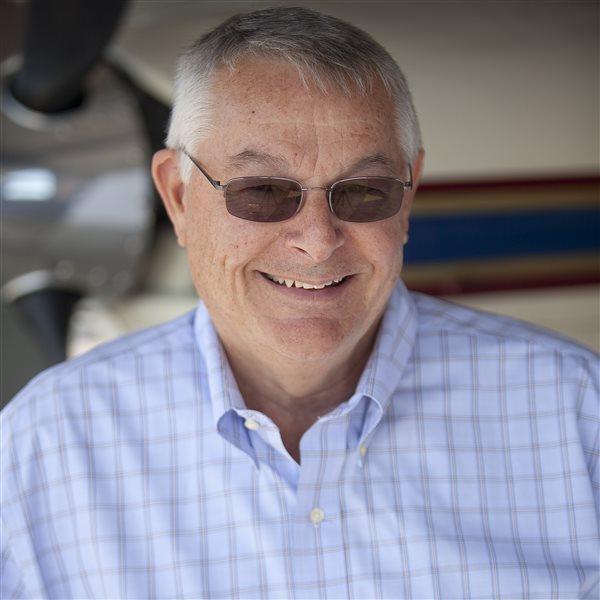The search for jet fuel savings
Don’t pay retail

Some of the major aviation fuel cards offer a quarter off per gallon but also offer contract fuel with larger discounts. Contract fuel is a fuel pricing and negotiating program that provides lower-than-retail fuel, especially when aircraft are away from home base.
Discounts are never set in stone. If an FBO paid a lot for fuel because of an increase at the refinery, you’ll have a smaller discount. If you provide a credit card that requires the FBO to pay a 3 percent fee, you may have no discount at all. The thing is to ask. Some pilots walk up to the counter after fueling and say something like, “I already have this discount from XYZ and that discount from ABC; what can you do?” Sometimes the answer is “nothing,” but at least you tried.
Price is hardly the final goal. What about service? Do they really have the fuel on hand and can you get it in a timely fashion? Is it tied to other services? Avfuel, for example, offers Avplan Trip Support that can help you plan an entire trip overseas. The company also has a rewards program and a contract fuel program called Avfuel Pro Card.
Does the company you choose offer a fuel release? That is an authorization for a reseller to arrange for fuel on your behalf. At UVair it is expected that most times you will use your UVair card and pay the way any other credit card is paid. They have no idea where you are going and there are no prior arrangements made for you. But request a fuel release from UVair, or a series of releases along your route, and they will notify the FBO. You land, fill up, and leave, paying for it through your UVair card. That’s also a good way to discover whether your stop actually has the fuel, especially when flying overseas.
Do it yourself
You can use software that does the price searching for you. FuelerLinx is aimed at flight departments—although others can join—and charges a minimum $350 monthly fee (if there are one to three aircraft in the department). It can tell you not only where the best prices are globally, but when you should tanker fuel so you can avoid expensive FBO ramp fees and fuel costs.
JetFuelX software is free and helps spot the best contract fuel price across your own multiple fuel program memberships. It can work with ForeFlight flight-planning software.
Price is hardly the final goal. What about service? Do they really have the fuel on hand and can you get it in a timely fashion?ARINCDirect provides international flight planning, scheduling, dispatch, and international trip support that, like FuelerLinx, can suggest when it is necessary to tanker fuel to skip expensive FBOs. You can look at prices at nearby airports along the way.
PFM Professional Flight Management is web-based software and provides not only flight and crew scheduling but databases, including one that tracks fuel prices. It appears aimed at larger flight departments.
Flying solo?
Even smaller operators can take advantage of bulk fuel purchases by companies known by various names to include brokers, resellers, and fuel marketers. These companies negotiate bulk prices that benefit even their smallest members. Everest is one such company. Everest leverages the purchasing power of 4,000 participating aircraft owned by its clients to get reductions of 55 to 65 cents per gallon.
Other companies providing single-source fuel are fuel marketer AEG Fuels using 1,800 suppliers in 140 countries; contract fueler UVair; fuel supplier Epic Fuels; JetFuelX; Eastern Aviation Fuels (the national Shell marketer); and contract fueler World Fuel Services/Colt International, known among operators as just “Colt.”
Good programs for checking fuel prices include FltPlan.com that offers fuel prices at 4,500 FBOs, AirNav.com that spotlights fuel deals and offers an AirBoss card for discounted fuel, and AOPA that partners with 100LL.com for pricing of jet fuel and 100LL. Evo Jet Services can also help you find fuel prices.
Paragon Aviation Group
You can get a discount if you are based at an airport with an independent Paragon network FBO. Contact a Paragon FBO to discuss network discounts. Paragon is an association of more than 30 independent FBOs in the United States and 25 overseas. Each FBO has pledged a minimum discount that is proprietary to Paragon for aircraft based at Paragon Network FBOs. There is a program called Paragon Preferred with 800 members who receive discounts at their Paragon home base and at other Paragon network FBOs. You’ll be directly emailed weekly pricing from every FBO in the network. Five percent of Paragon clients don’t have flight departments.
Corporate Aircraft Association
CAA is an organization for any Part 91 operator of a turbine-powered aircraft, including individual pilots, that provides reduced fuel prices at 220 member-approved FBOs. The FBOs bid using low fuel prices to become the only CAA FBO at a single airport. Members present their N number for the discount. There are 7,000-plus aircraft in the program. Membership is $500 per aircraft and there is a six-month free trial period.
Major fuel cards
Always present the card that matches the brand offered by the FBO, because that way the FBO does not have to pay a fee. If the FBO pays a fee, you may not get a discount. Players include Shell Aviation, Phillips 66, AirBP, Exxon Mobil, Chevron, and Air Total. Many of the major oil companies also offer lower-priced contract fuel, but of course the greatest benefit is to aircraft operators using larger quantities of fuel.



